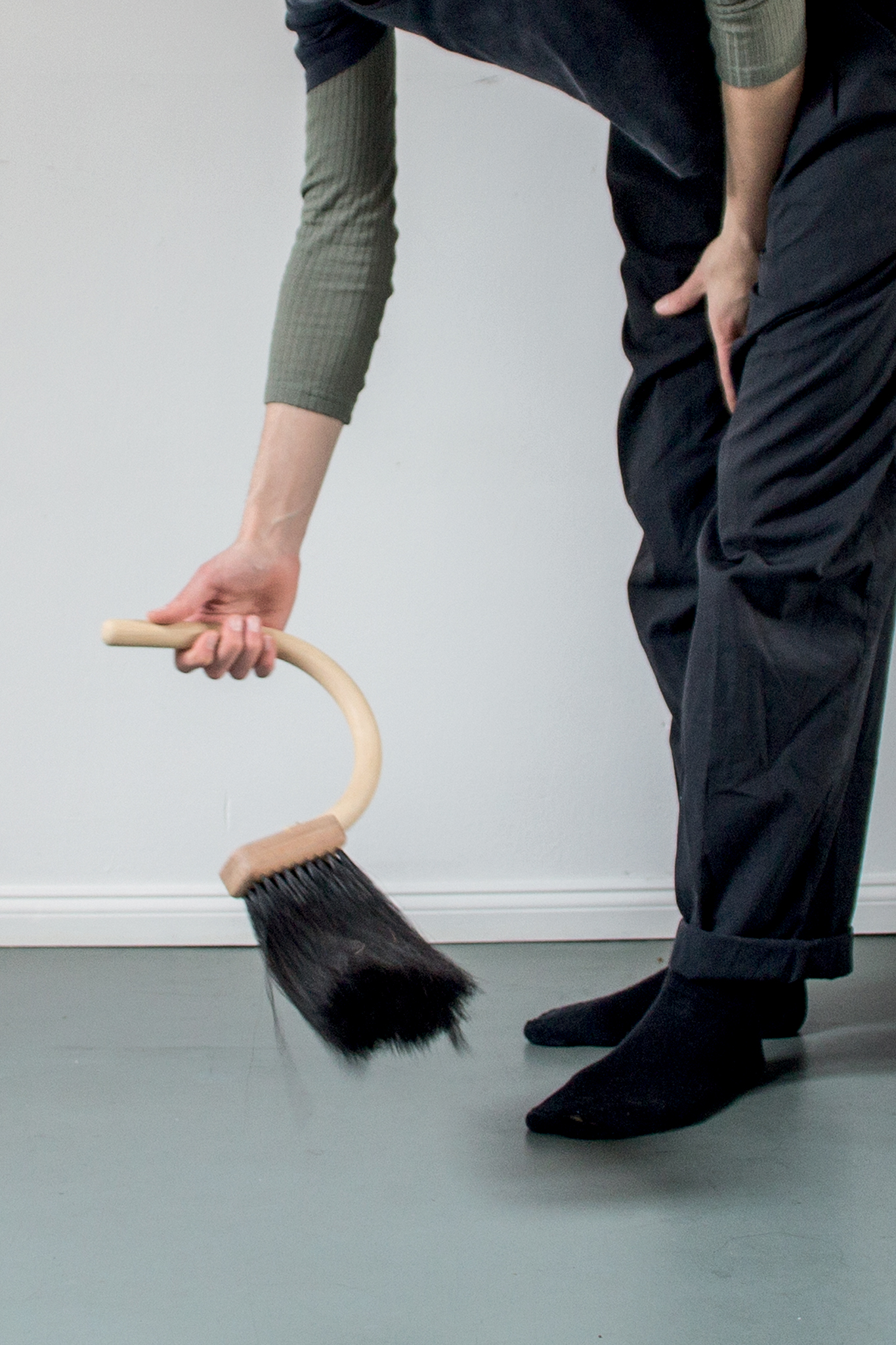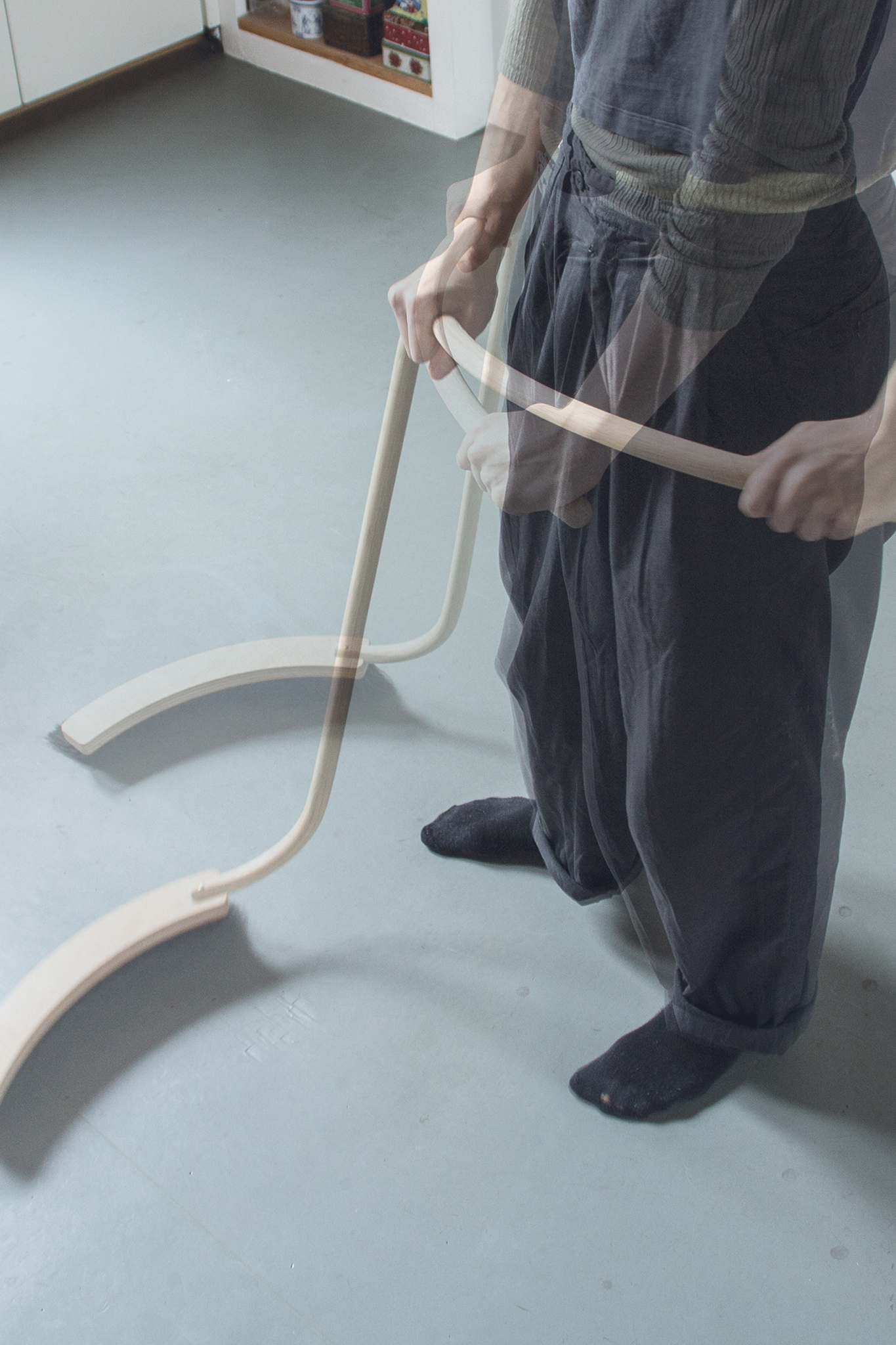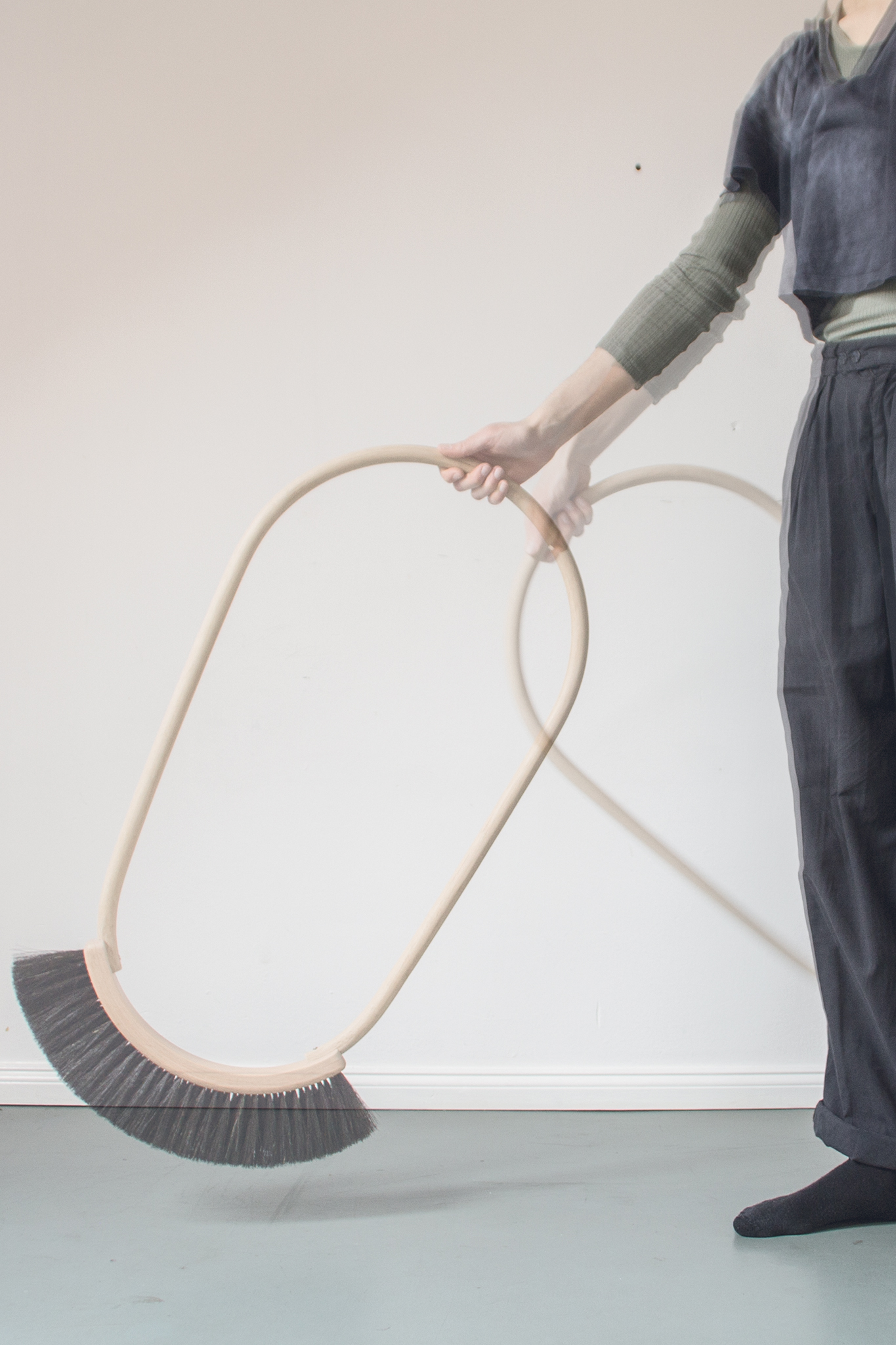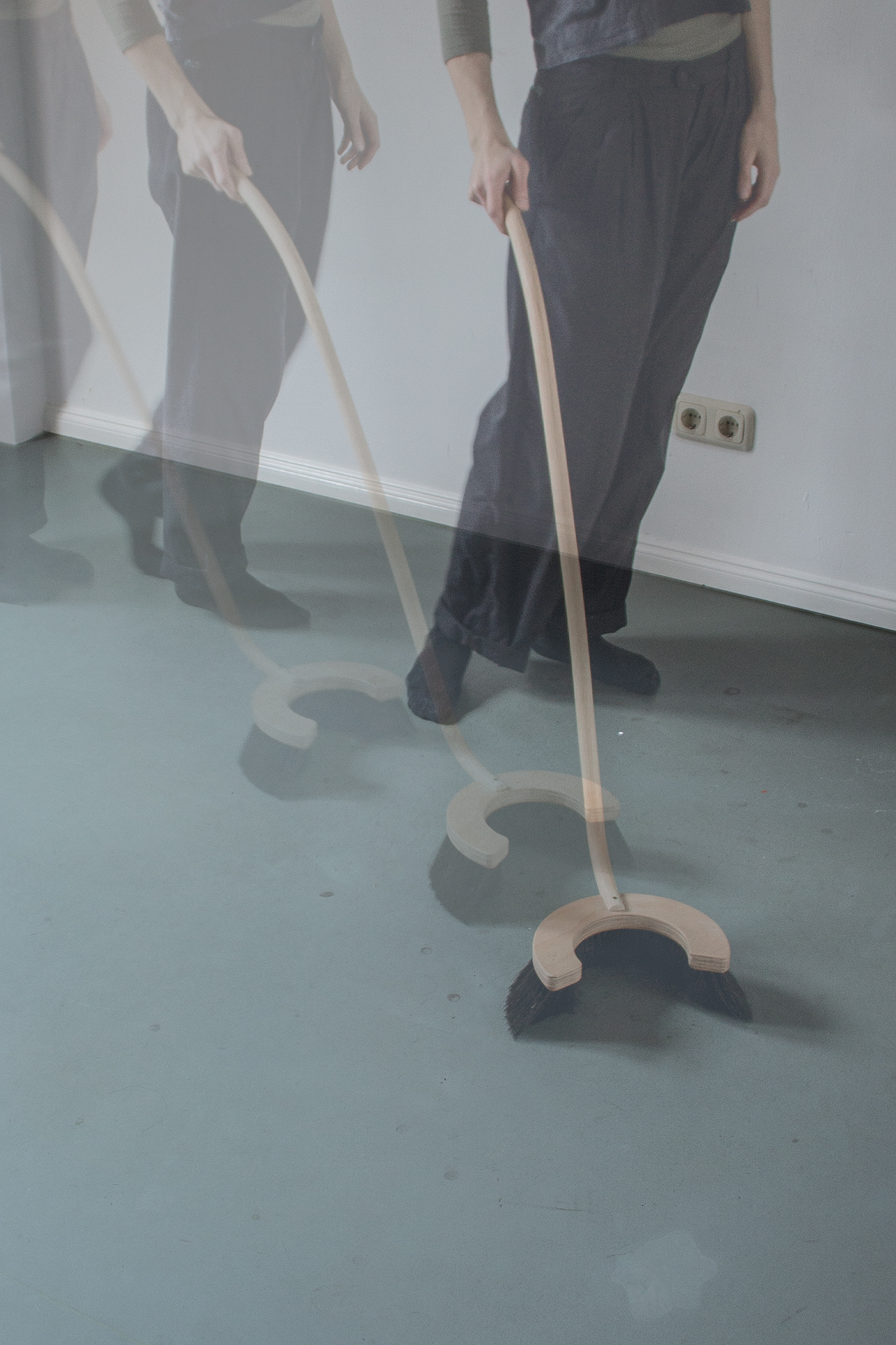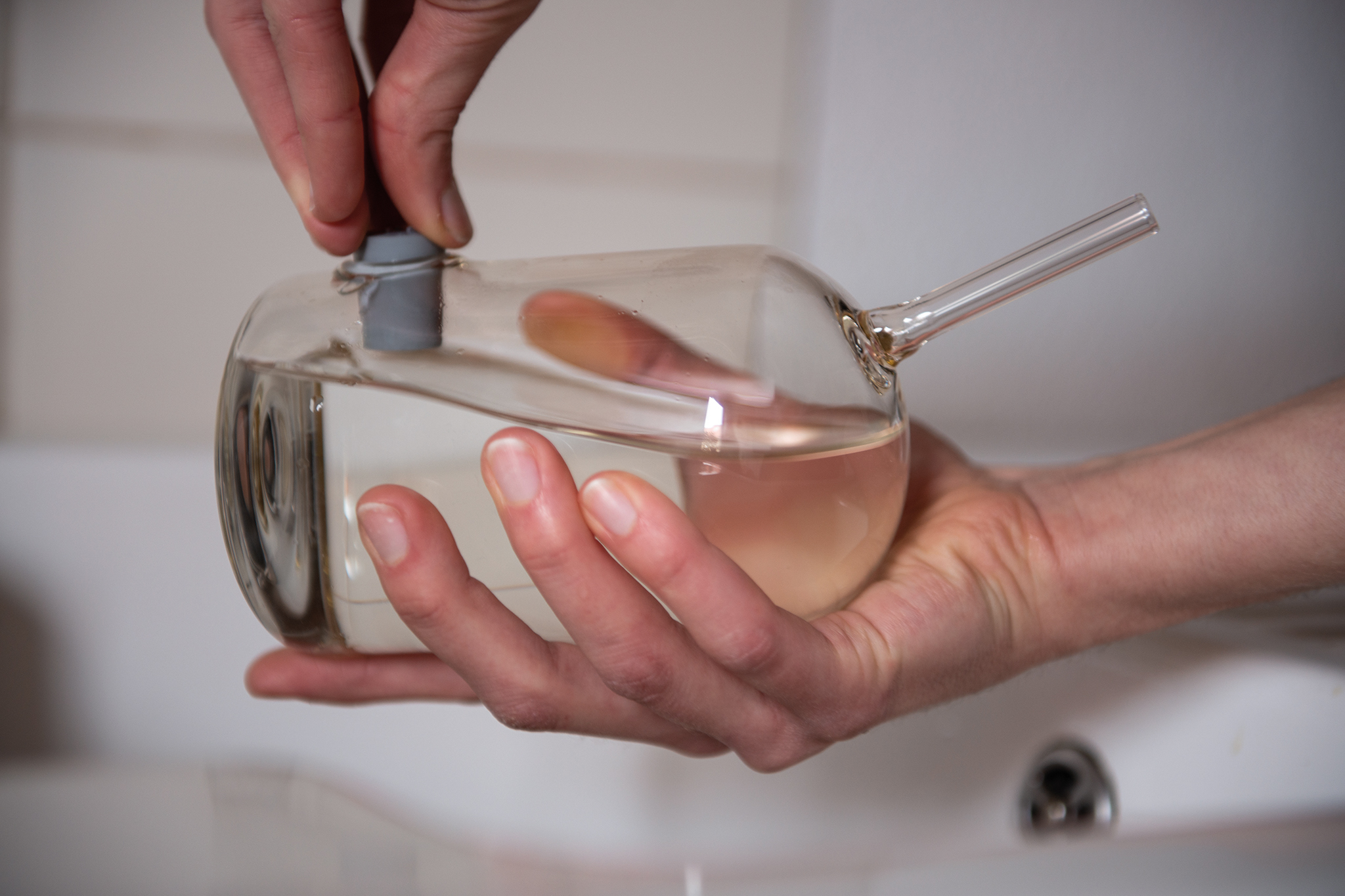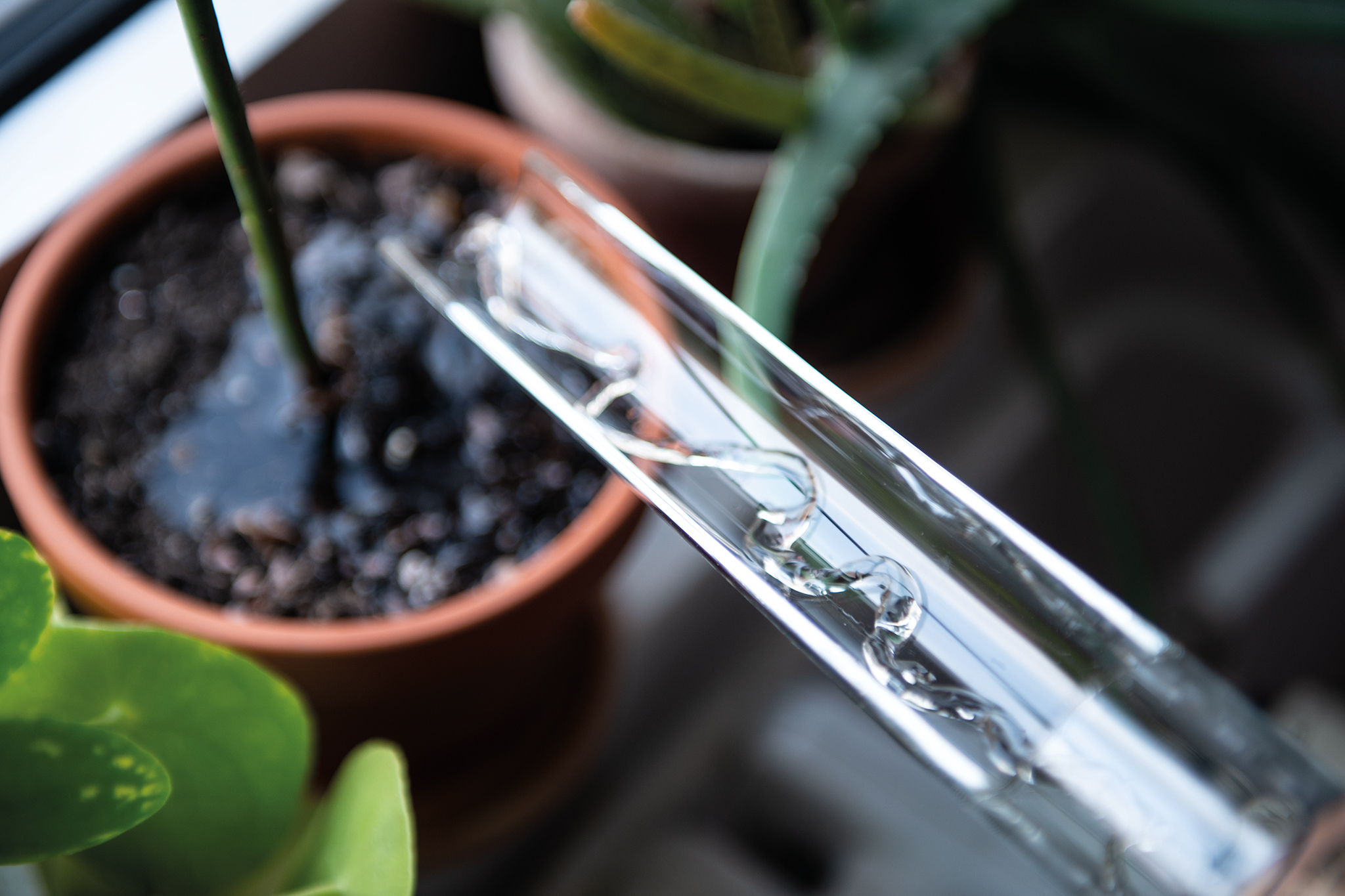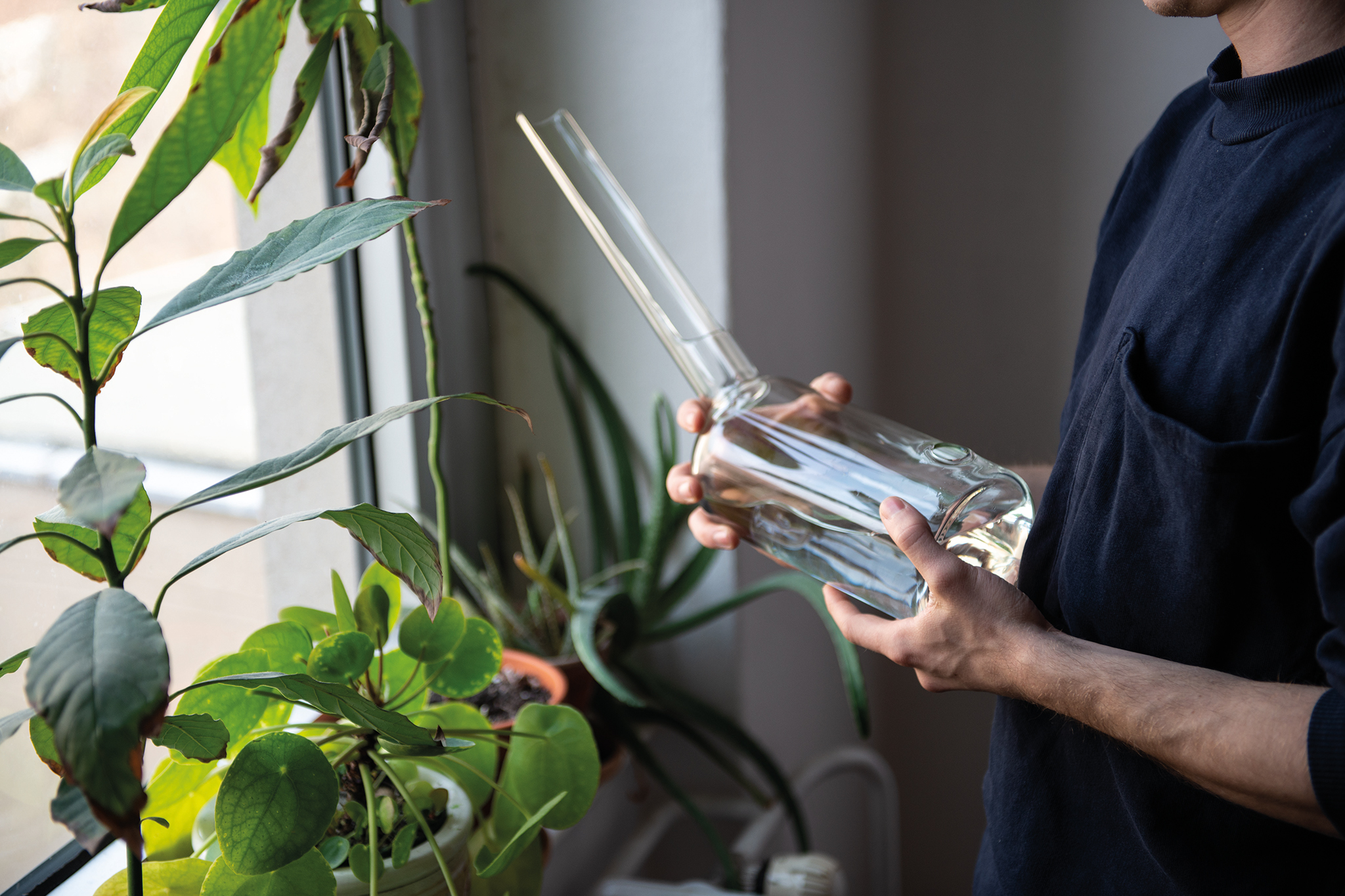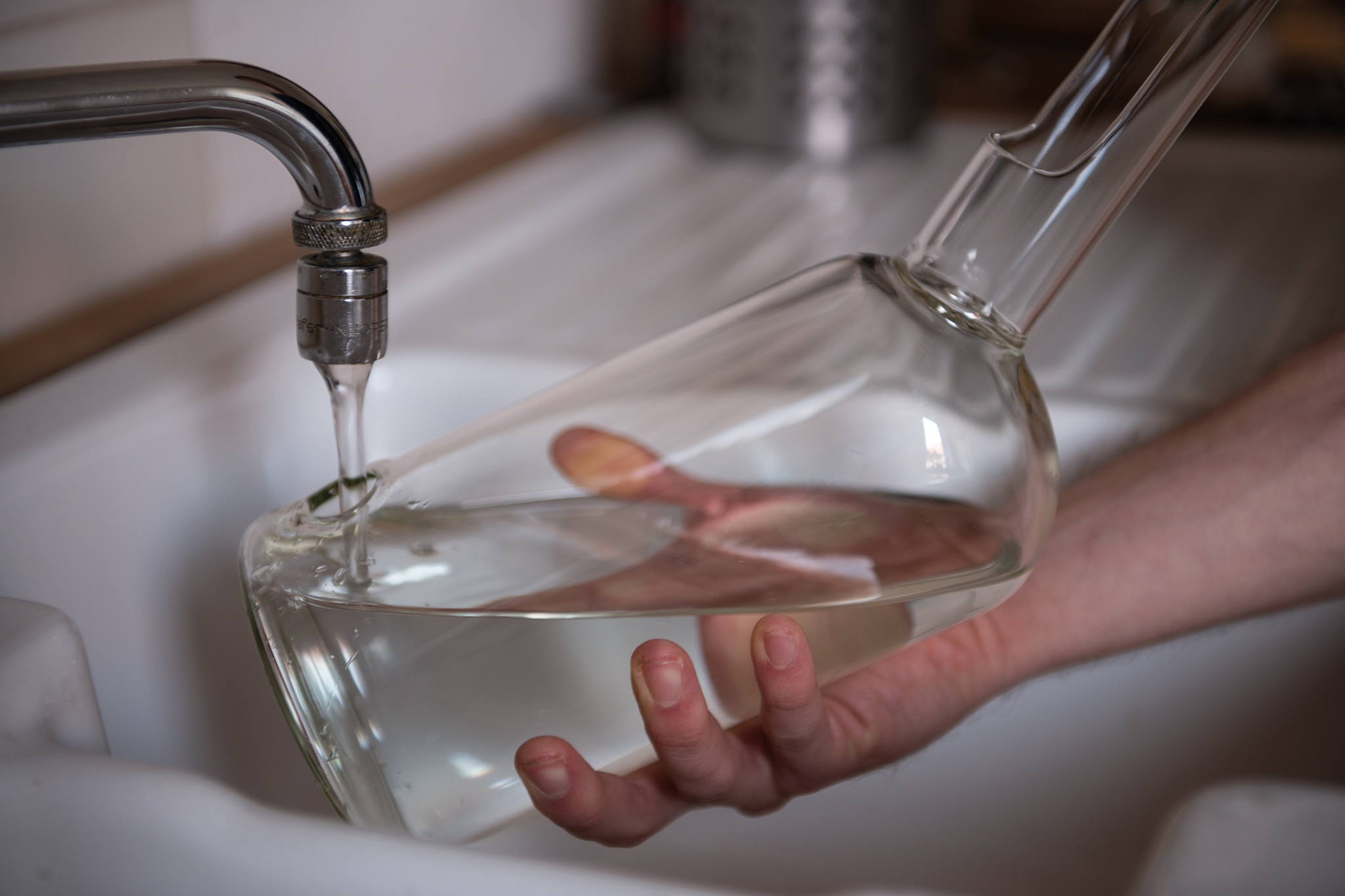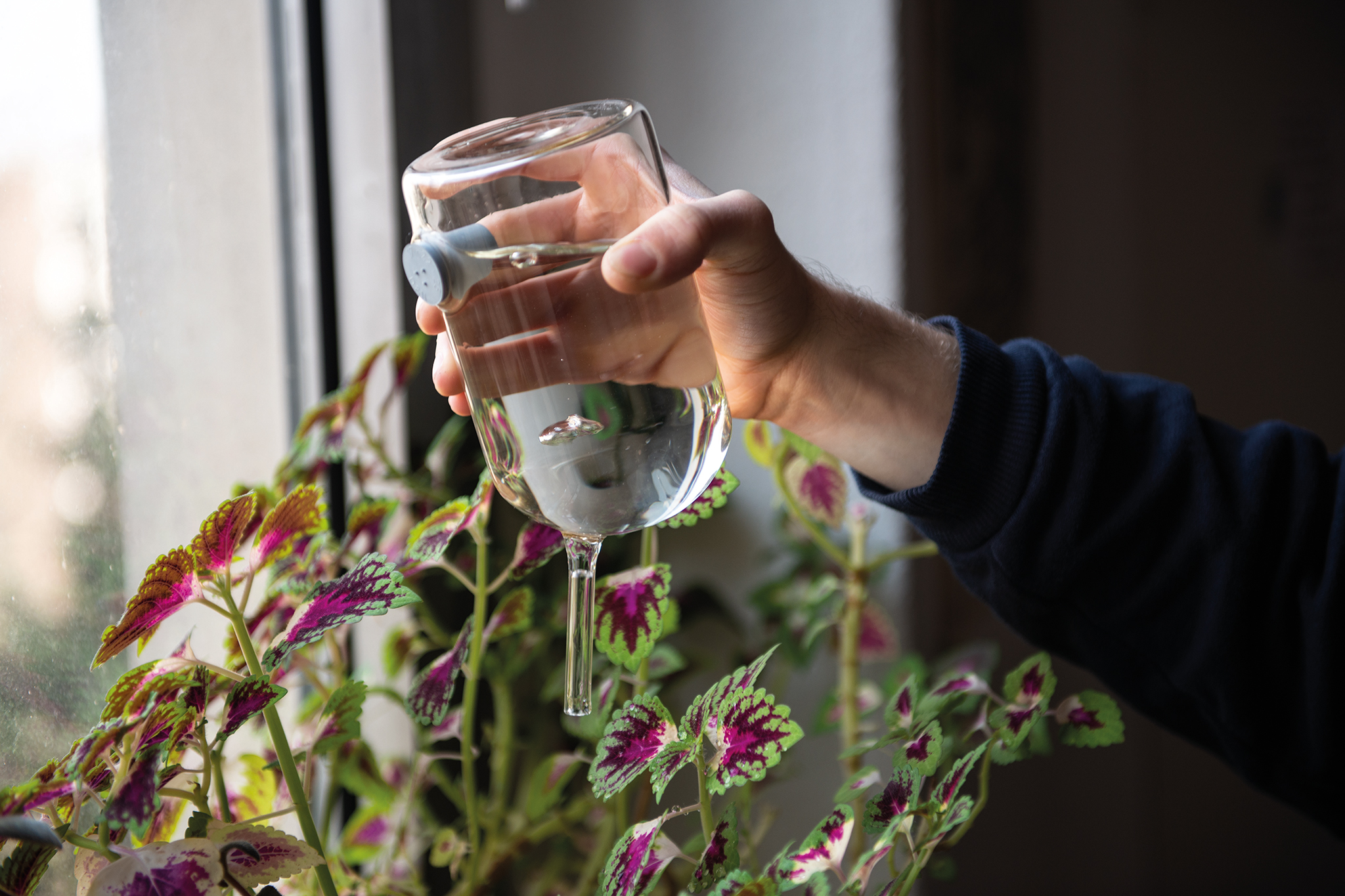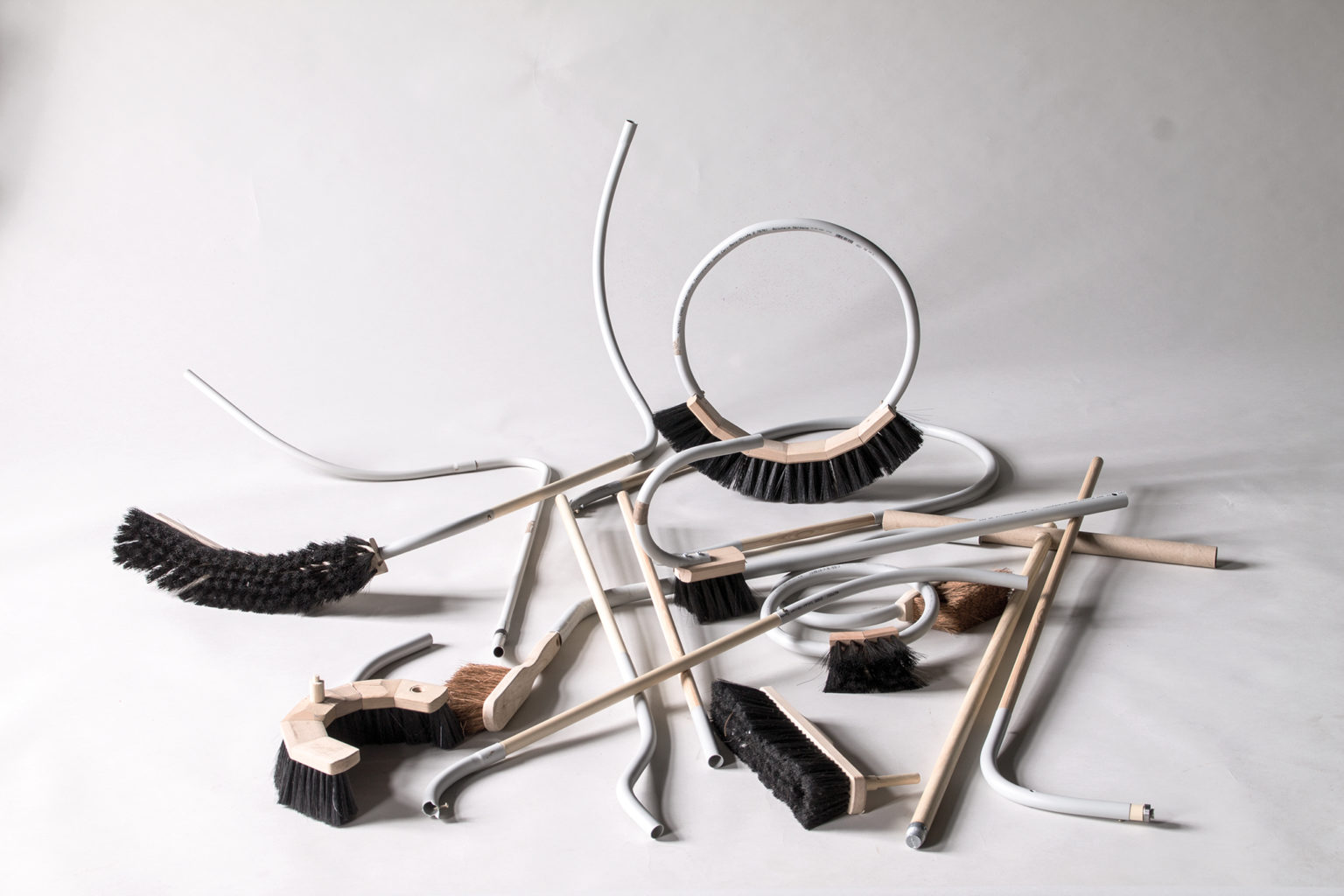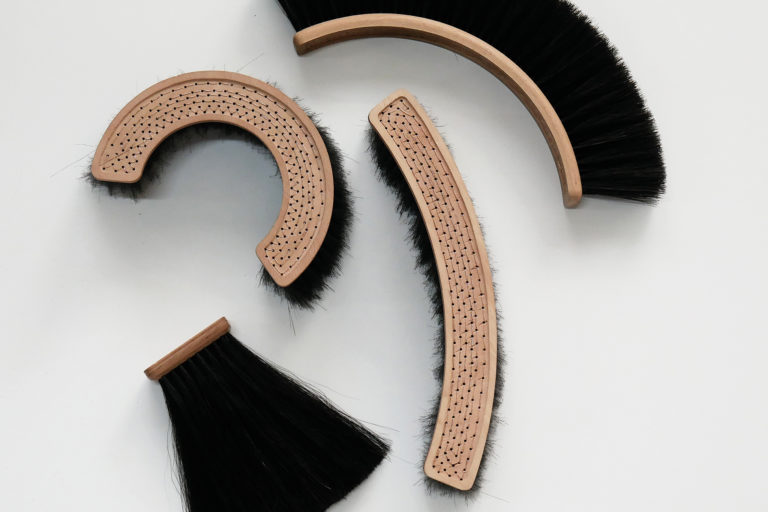Das Tun an sich
Agnes Kelm
Agnes Kelm
2021
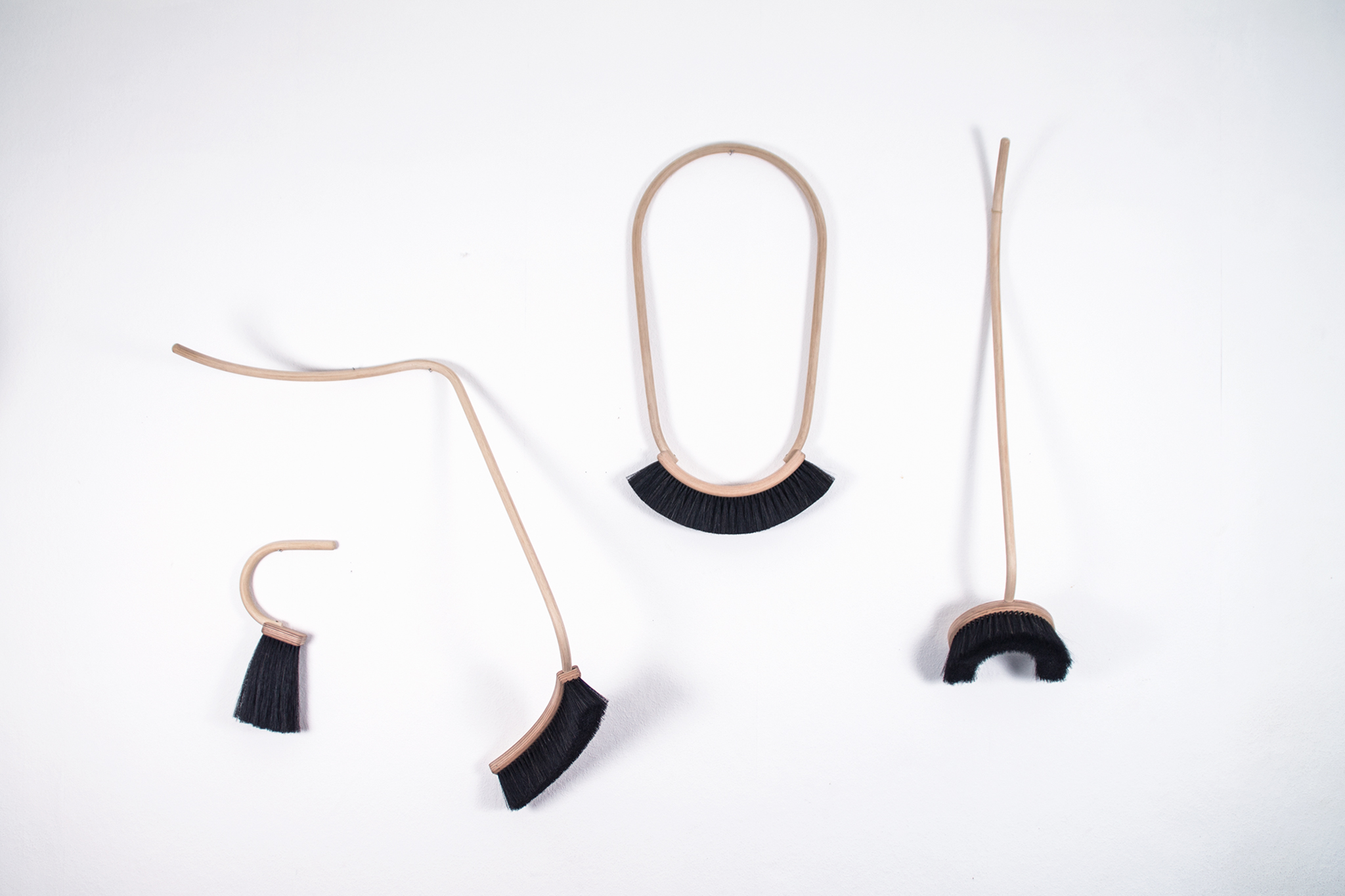
Supervisors_ Prof. Ineke Hans, Prof. Holger Neumann, Annika Unger
Student_ Agnes Kelm
Student_ Agnes Kelm
The six objects are the result of the occupation with the question of
how objects can be used to place the process of action before the
result and thus free oneself from the mere achievement of a goal or
result when doing.
Everyday activities, such as sweeping a room and watering houseplants, are altered through the use of objects in such a way that the focus shifts from the goal to the process. In this way, they provide an occasion for an examination of performance-oriented action and question common assumptions about the functionality and efficiency of processes. You can sweep with brooms and water with watering cans, it just works a little differently than you’re used to.
The water has to make its way through the spout of the cans. It doesn’t do that as directly as it does with a traditional watering can. It takes a detour, but an aesthetic one, because it creates serpentine lines and bubbles that you can look at while standing and pausing. Filling the cans must be done slowly, and the path from the faucet to the plant is also best done carefully. The materiality supports deliberate and concentrated handling.
The brooms are less fragile in use. They allow for large and small movements, sometimes more, sometimes less free and repetitive. The repetition can induce a meditative effect. In any case, sweeping the room takes time. In the repetition of movement, the opportunity for comparison and increased concentration on the activity opens up. How do I move myself and how the broom? I use more momentum at one time and less at another. What changes? The movements are not complicated, but they do require attentive attention. Simply doing it on the side is not possible.
Everyday activities, such as sweeping a room and watering houseplants, are altered through the use of objects in such a way that the focus shifts from the goal to the process. In this way, they provide an occasion for an examination of performance-oriented action and question common assumptions about the functionality and efficiency of processes. You can sweep with brooms and water with watering cans, it just works a little differently than you’re used to.
The water has to make its way through the spout of the cans. It doesn’t do that as directly as it does with a traditional watering can. It takes a detour, but an aesthetic one, because it creates serpentine lines and bubbles that you can look at while standing and pausing. Filling the cans must be done slowly, and the path from the faucet to the plant is also best done carefully. The materiality supports deliberate and concentrated handling.
The brooms are less fragile in use. They allow for large and small movements, sometimes more, sometimes less free and repetitive. The repetition can induce a meditative effect. In any case, sweeping the room takes time. In the repetition of movement, the opportunity for comparison and increased concentration on the activity opens up. How do I move myself and how the broom? I use more momentum at one time and less at another. What changes? The movements are not complicated, but they do require attentive attention. Simply doing it on the side is not possible.
Text by Agnes Kelm
